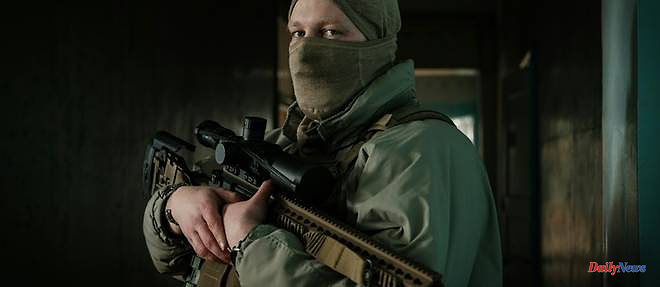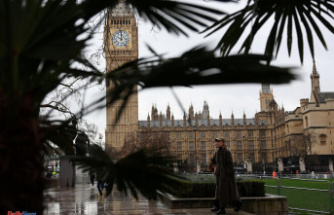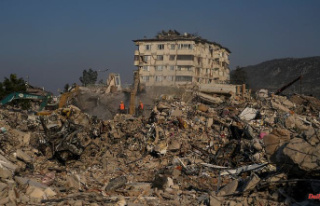"I'm not afraid of the Russians," exclaims "Voron", a sniper with the Ukrainian border guards in the eastern region of Donbass.
"But don't tell my mother I'm here," laughs the 29-year-old soldier, who has been in the army for 12 years.
He wanted to be a sniper since childhood. In action movies, snipers are usually portrayed as ruthless, silent lone wolves, lying in wait to take down their prey with surgical efficiency.
But "Voron" - his nom de guerre, which means "Crow" in Ukrainian - describes a very different reality.
"Usually, the equipment I have doesn't always fit in one car," he explains, his face hidden by a ski mask and a thermal balaclava in order to protect himself from the biting cold and to keep his secret identity.
To carry out his tasks, Voron needs much more than his AXMC, a rifle that can hit targets up to a mile away.
With him, "these are shovels, just to build your position, ammunition of course. And your cover group with your spotter", "usually five or six people, four at the minimum".
Despite fierce fighting and relentless shelling in places like Bakhmut, a city the Russian army has sought to capture since the summer, the winter months have slowed the pace of the battle for control of Donbass.
But the conflict is expected to escalate as the first anniversary of the start of the Russian invasion approaches on February 24.
And snipers play their part.
They can perform reconnaissance missions at targets up to three kilometers away or shoot at small groups of enemy fighters from caches.
But their first task is to meticulously monitor any changes in the surroundings.
"A bush that was not there the day before (...) could shelter an enemy sniper if it is a rural area," he explains.
"In more urban areas you look for alterations in windows and roofs and something not as it should be...everything is a threat."
Voron dodges a question about how effective snipers have been in warfare until today.
However, he maintains that these remain essential, even if he recognizes that they are not the panacea.
"Some people hate us. But if there's trouble, people always want us there," he says.
And they occupy a special place within the paramilitary unit which, in times of peace, patrols the borders of Ukraine.
"You are the eyes of your commander and you are the one who will take out the most dangerous threat - unless it's a tank, of course," he stresses.
Staring through a telescopic sight for long hours can be stressful, Voron says, but nothing is as difficult as withstanding freezing for hours.
Snipers can remain holed up in one position for up to two days.
Even when temperatures recently dipped to -12 degrees Celcius, blanketing the ground in snow and freezing everything, the men had to hold on.
"It's damn cold," he notes with a laugh, "it's hard work."
But the preparation and the wait, as painful as they are, are the strength of these men.
"There's a joke in the military that if you tell infantry and a sniper they have eight hours to cut down a tree, the infantry spends eight hours cutting it down," Voron says. . "The sniper spends seven hours sharpening his axe, then chops it down with a single blow."
12/02/2023 08:37:47 - Bakhmout (Ukraine) (AFP) - © 2023 AFP












